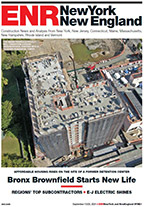Hurricane-hammered airports in Louisiana, Mississippi, Alabama and Texas are getting some federal help in paying for needed repairs. President Bush signed a bill on Oct. 7 that widens the range of construction at those airfields that are eligible for Federal Aviation Administration Airport Improvement Program grants through fiscal 2006. It also lets them use AIP aid for emergency operating costs. Moreover, through 2006 it waives AIPs nonfederal matching share, which is 25% for large airports and 5% for small ones.
The legislation, which the House passed Oct. 6 by 420-0 and the Senate cleared Sept. 28, "sort of jump-starts the rebuilding process," says Brad Van Dam, Airport Legislative Alliance staff vice president. For area airports, "That ought to be welcome news," he adds.
AIPs main use is for runway and taxiway work but it also can finance terminals and buildings for rescue, firefighting and snow-removal equipment, says Barry Molar, manager of FAAs airport financial assistance division. House aviation subcommittee Chairman John Mica (R-Fla.) says the new law will "temporarily broaden the eligible uses of existing...AIP funds, so that the full spectrum of hurricane repair costs can be met." That includes hangars and other buildings and emergency expenses, such as generators.
Mica says hurricanes Katrina and Rita hit more than 40 airports, causing damages that FAA estimates at $160 million. Mica says FAA already has sent $47 million in 2005 emergency aid to those airfields. The new legislation will provide the flexible funding through fiscal 2006, which began Oct. 1.
Senate aviation subcommittee Chairman Trent Lott (R-Miss.), an architect of the bill, says the 100% federal funding is important. State and local governments in the region "are cash-strapped, and some municipalities are destroyed," Lott says. "This bill takes considerable pressure off local taxpayers at a time when its needed most."
For Louis Armstrong New Orleans International Airport, the new law will be an immense help, says spokeswoman Michelle Duffourc. The airport sustained $55 million in damages and has "an eight-page laundry list" of repairs, she says. With daily departures there down to about 25 from 174 before Katrina, officials estimate it will lose $70 million in revenue over the next 16 months. Half the airports staff was laid off on Oct. 7.
Damage costs at Mississippis Gulfport-Biloxi International Airport, are "in the tens of millions," says Director Bruce Frallic. It needs to replace a cargo facility and rental car service center that were destroyed. "We couldnt do it without [the new law]," he says. "With it, were going to recover quickly."
| Industry praised the "GAS" bill but environmental groups criticized it. Before the House vote, Energy and Commerce Committee Chairman Joe Barton (R-Texas) deleted industry-backed provisions dealing with Clean Air Act "New Source Review" requirements for refineries, powerplants and other facilities. There has been no Senate action yet on refinery legislation, but hearings are possible the week of Oct. 17, according to a lobbyist. |



Post a comment to this article
Report Abusive Comment